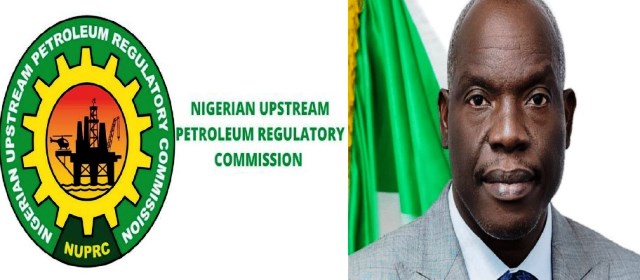The capital market holding firm Afrinvest West Africa Limited has advised fiscal and monetary authorities in Nigeria to reconsider their anti-inflation measures in order to tackle the rising rate of inflation in a comprehensive manner.
Managing Director, Afrinvest West Africa Limited, Ike Chioke, disclosed this yesterday at the unveiling of the 2023 Nigerian Banking Sector Report titled: “Getting Nigeria to Work Again!”
Join our WhatsApp ChannelHe explained that both the monetary and fiscal authorities have mainly been fixated on the control of money supply and selective tax reliefs.
“In our view, an effective strategy for taming the high inflation rate would be one that addresses structural bottlenecks (notably, insecurity and infrastructural gaps), improves ease of doing business, and incentivizes large-scale local production of agriculture and manufactured goods alongside effective liquidity management and proper anchoring of market yields to the Monetary Policy Rate (MPR),” he said.
“In all, we stress that failure to stem the surging inflation tide in the near term would result in a contagion financial sector crisis and by extension, derail other segments of the economy from the growth path, given banks’ pivotal role as an economic bridge between the supply and demand segments of the economy,” he stressed.
According to data released by the National Bureau of Statistics, the headline inflation rate in Nigeria hit 27.3 per cent and food inflation reached 31.5 percent.
According to the report, Nigeria’s fiscal challenges have continued unabated. After hitting the N70 trillion mark in 2022 due mainly to the N23.7 trillion addition from securitised Ways & Means liabilities, the total public debt profile nudged higher to N87.4 trillion in the first half of this year.
“This, in addition to underwhelming revenue performance in the first half of 2023 (actual revenue, N4.1 trillion, underperforms pro-rata target by 26.5 per cent, and 99 per cent of it, N4 trillion was used to servicing debt) has further put Nigeria on the cusp of insolvency.
Against this backdrop, the new administration of President Bola Tinubu has introduced some policy measures to assuage the fiscal pressure, notable amongst which are the “partial” removal of subsidy payment on PMS, the increase in education tax by 50 basis points to three per cent, and the introduction of a 7.5 per cent Value Added Tax on diesel,” the report said.
READ ALSO: Finance Minister Advocates CNG Adoption To Halve Petrol Costs
Despite these measures, Afrinvest said it does not see a quick fix to the fiscal pressure in the near term, given increasing internal and external pressure points on the economy and the time lag required for policy reforms to manifest gains.
The panelists at the event-Amal Hassan, Founder/CEO, Outsource Global; Robert Dickerman, Chief Executive Officer, Pinnacle Oil & Gas; Odunayo Eweniyi, Cofounder/Chief Operations Officer, Piggyvest; Anthony Okungbowa Esq., Head of Service, Edo State Government and Sadiq Kassim, Director, Corporate Affairs, TGI Group, all called on the government to take steps that will boost government revenue earning capacity and boost food security through support for the agricultural sector.
Chief Executive Officer, Ministry of Finance Incorporated, Dr. Armstrong Takang, said government took the right step by instituting forex reforms and freeing forex previously used to defend the naira.
He said the Federal Government had in the past, lost so much forex trying to defend the naira, adding that the implementation of the ‘willing buyer, willing seller’ model has preserved forex for the economy.
He said that in its effort to unlock forex liquidity, the Federal Government is encouraging people with genuine forex to bring them back home for investment in the domestic economy.
Takang said many of the corporate assets are not paying dividends to the government, and that has led to revenue loss. “The International Monetary Fund advised us that domestic resource mobilization is key in our plan to boost revenue,” Takang stated, adding, “Also, many of our corporate assets have not been paying dividends. We have oil and gas assets that are not performing optimally and that has to stop. We need to optimize assets lying dormant to boost capital position.”
The report urged the new Central Bank of Nigeria (CBN) leadership to make efforts geared towards reversing the unorthodox policy measures of the last administration, restoring market confidence in the CBN’s autonomy, and prioritizing the core goals of price and exchange rate stability.
“Nonetheless, we believe that achieving all of these in the short-term would be a herculean task, given that complementary fiscal policy actions are required for the CBN to record gains,” it said.
“In the meantime, we canvass that the authorities double down on efforts to check insecurity, curb oil theft, tame inflation, anchor market yield on Monetary Policy Rate, and improve the business environment. Also, we believe that the sustained high demand for FX in the parallel market due to lingering weak supply in the official market coupled with inefficient processing time would continue to undermine the objective of these measures.”
“As regards the impact of the measures on the banking industry, we expect the re-introduction of the willing buyer, willing seller model to support a modest positive upside for the FX transaction income of banks going forward,” the report stated.
“As the new CBN leadership takes over, Nigerians and the banking industry are on the lookout for a positive and timely turnaround of stifling banking regulations and major monetary indices – exchange rate, inflation rate, and Foreign Portfolio Investment and foreign Direct Investment flows,” the report said.
Victor Ezeja is a passionate journalist with seven years of experience writing on economy, politics and energy. He holds a Master's degree in Mass Communication.

















Follow Us